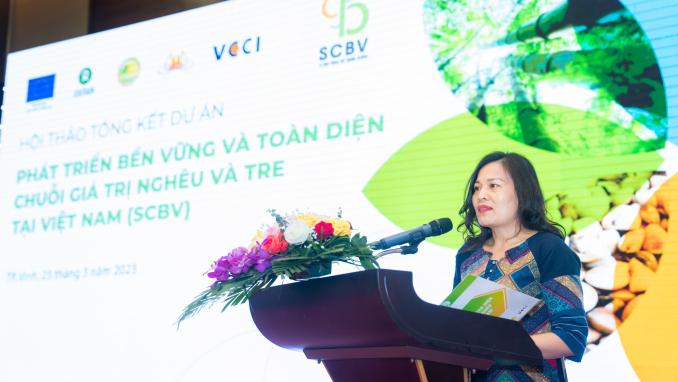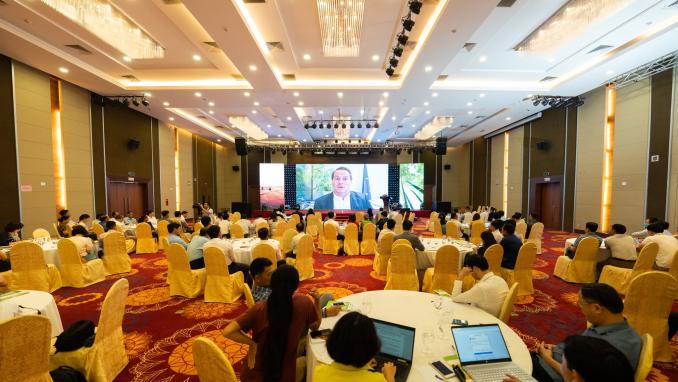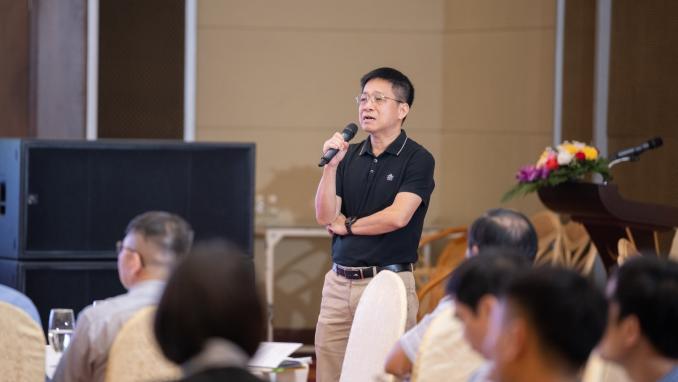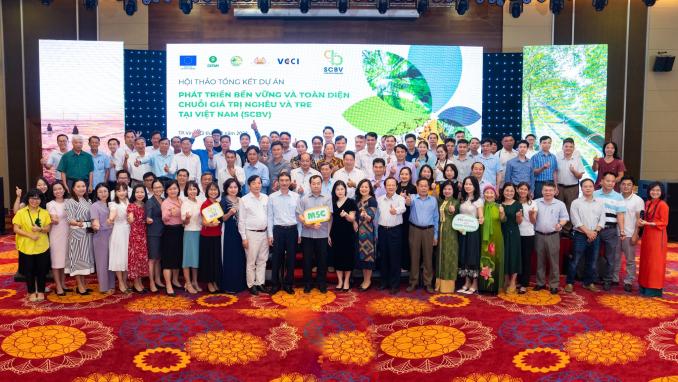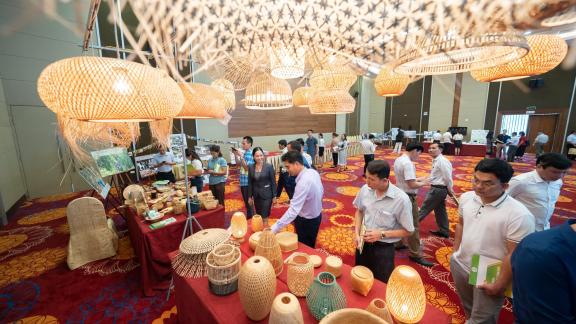
Visitors gather around the booth displaying bamboo products of cooperatives and enterprises participating in the project
On the morning of March 23, the "Inclusive and Sustainable Clam and Bamboo Value Chains Development in Vietnam" project concluded after five years of dedicated support to individuals, businesses, and policymakers in the region. The project aimed to alleviate poverty and inequality in rural areas of Vietnam by fostering the growth of sustainable and inclusive value chains.
The seminar commenced with an emotive opening, featuring a short film that reflected upon the project's journey. Over 150 delegates reconvened to reconnect with small-scale producers who experienced improved incomes as a result of the project, with passionate team leaders who guided communities towards sustainable practices with international certifications, and with businesses that underwent significant transformations following the strategic redirection.
By adopting sustainable standards as a guiding principle for production development, the project has collaborated with local communities to enhance farming techniques and enable farmers to obtain international certifications such as MSC/ASC for clams and FSC for bamboo. This transition has facilitated a shift for farmers in the clam and bamboo value chains from individual small-scale production to organized groups or cooperatives. It has also fostered a mindset of innovation in management practices, while strengthening the interconnectedness among various stakeholders in the value chain through cooperative agreements based on sustainable production and procurement standards. This has enabled exporters to promptly respond to market demands.
Over the course of five years, the project has provided support to over 34,000 individuals in increasing their sustainable income, while assisting 63 businesses in enhancing value addition and adopting more inclusive business policies. The project contributed to an increase in Vietnam's clam exports to Europe by 38-40%, and bamboo exports by 42%.
Ms. Vu Thi Quynh Hoa, the National Director of Oxfam in Vietnam, emphasized the importance of developing an inclusive value chain that not only increases the income of each participant but also ensures equal sharing of benefits and risks among all actors involved. This approach motivates small-scale producers to adopt sustainable production practices and generates greater positive impacts.
Mr. Jesus Laviña, Deputy Head of the Cooperation Department at the Delegation of the European Union to Vietnam, shared his insights on the EU-Vietnam Free Trade Agreement, which has been in effect for 2.5 years. He highlighted that this agreement has given Vietnam a significant advantage over its competitors and has positioned the EU as one of Vietnam's major trading partners in the future, as evidenced by the 11.9% increase in trade compared to 2021. However, he acknowledged that global challenges such as the COVID-19 pandemic and the conflict in Ukraine have adversely affected global supply chains and commodity prices.
To maintain its comparative advantage, Mr. Laviña emphasized the need for Vietnam to compete based on quality, including adherence to better social and environmental standards, and to maintain the trust of international customers. He expressed the relevance and timeliness of the project and expressed hope that the achieved improvements in product quality and certifications will be sustained. The participatory approach, which involves stakeholders at different levels of the value chain working together to enhance product quality through collaborative efforts, has been a key factor in achieving these outcomes.
-------
The project "Inclusive and Sustainable Clam and Bamboo Value Chains Development in Vietnam" is funded by the European Union, implemented by Oxfam in Vietnam, the International Collaborating Centre for Aquaculture and Fisheries Sustainability (ICAFIS), the Non-timber Forest Products Research Centre (NTFPRC) and Vietnam Chamber of Commerce and Industry (VCCI). The project is implemented from 2018-2023, in Nghe An, Thanh Hoa (bamboo) and Tien Giang, Tra Vinh, and Ben Tre (clams).
